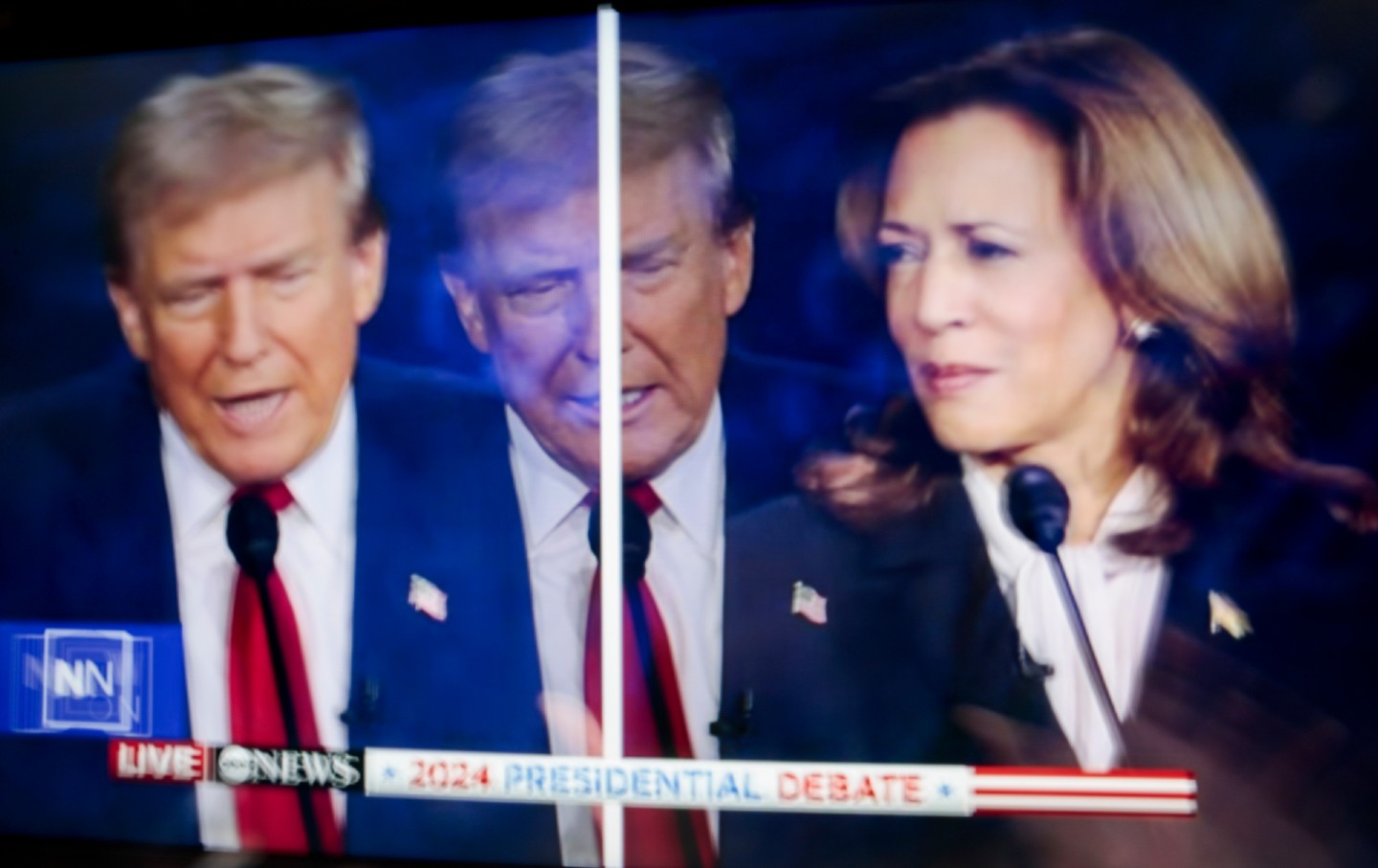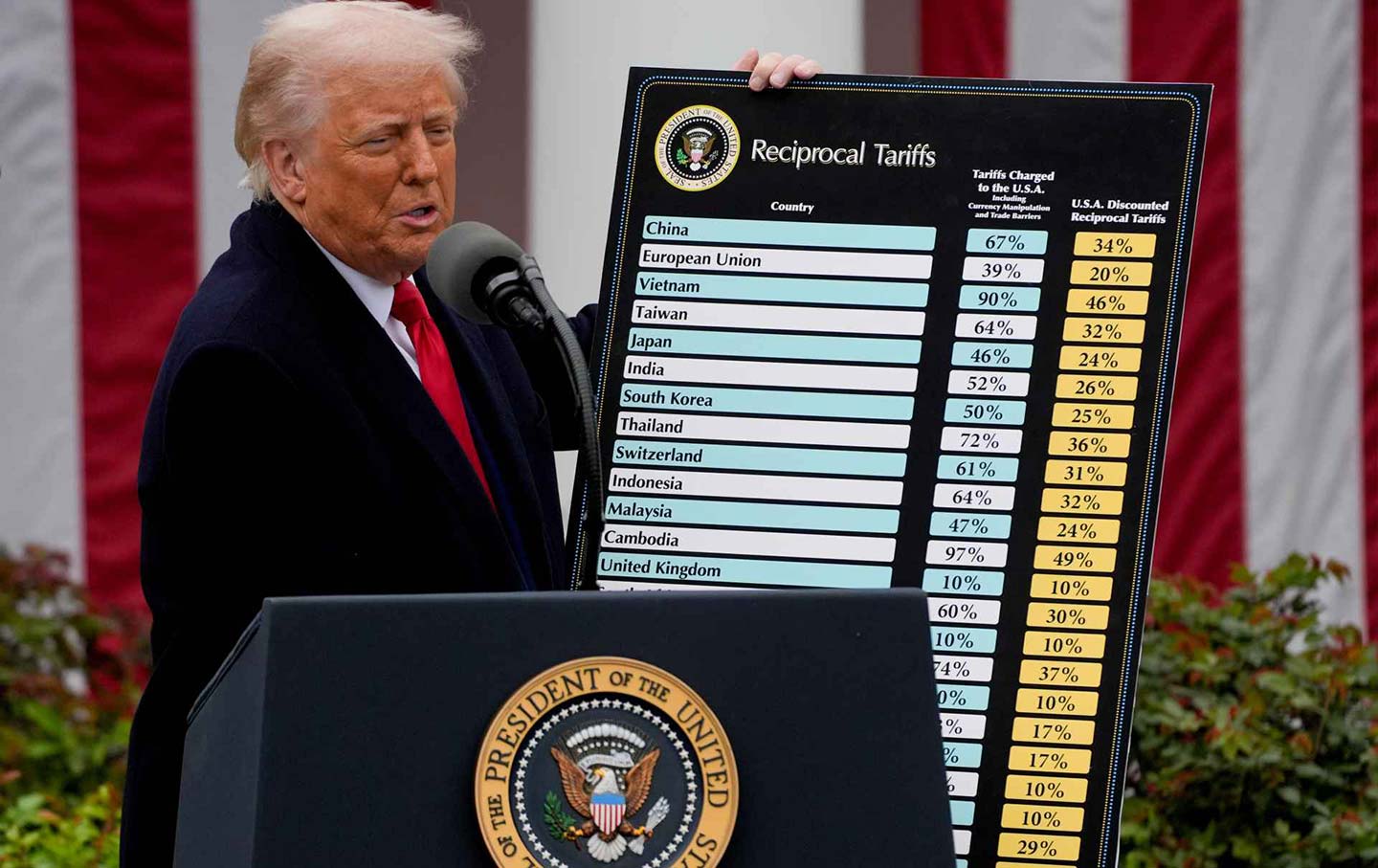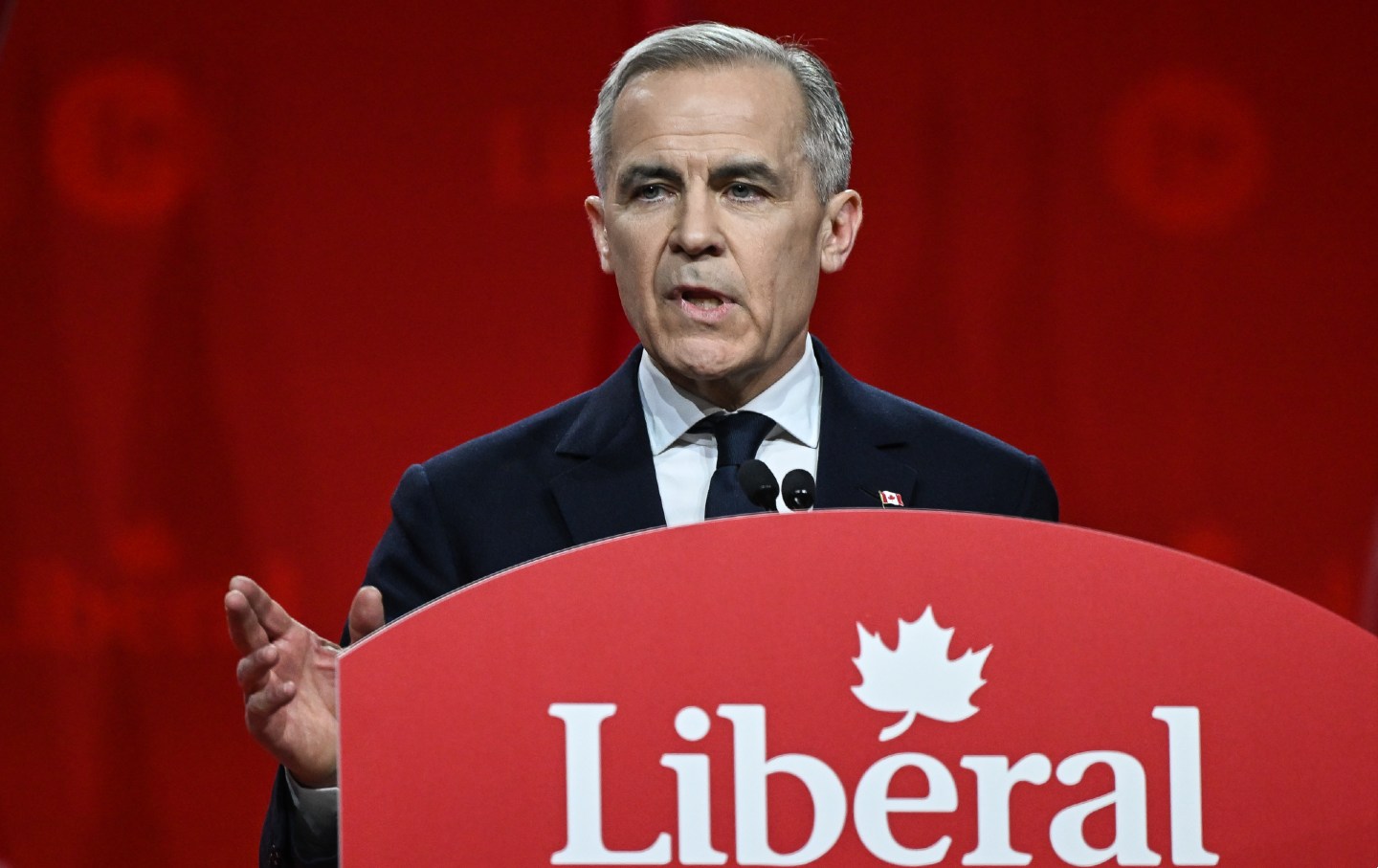With Her Rope-a-Dope Strategy, Kamala Harris Baited Trump Into Scaring Swing Voters
Last night’s debate will help give Democrats an edge. But strengthening the base remains crucial.

If you live by the debate, you will die by the debate. Donald Trump’s match against Joe Biden on June 27 was a genuine knockout—resulting in Biden giving up his reelection hopes. Biden’s staggeringly bad performance in that debate is already legendary: A sitting president showed himself for all the world as an ongoing cognitive crisis, mumbling, doddering, losing his train of thought, unable to stand up to Trump’s barrage of lies. But as I noted at the time, Biden’s dismal performance hid the fact that Trump himself had clearly lost a step or two. If all attention hadn’t been fixed on the Biden disaster, Trump’s own tendency toward rambling vagueness and incoherence would have been seen as disqualifying.
With Tuesday’s debate between Trump and Kamala Harris, Trump no longer had the protective cover of a hapless and flailing rival. Quite the reverse: Harris dominated the debate, relying in particular on a masterful strategy of hitting topics that Trump is especially touchy about. This deliberate baiting of Trump threw him off message. Instead of pounding away on what he sees as his best topic (opposition to undocumented immigrants), Trump was goaded into defensive and aggrieved answers about crowd size, the January 6 attempted coup, and his response to the white supremacist rally in Charlottesville in 2017. At one point, Trump became so unhinged that he started shouting about immigrants eating cats and dogs in Springfield, Ohio—a racist canard that has much popularity on the online right but, as debate moderator David Muir of ABC News pointed out, has no basis in fact. All of this made Trump sound unhinged.
As David Weigel of Semafor acutely noted, Harris had a strategy that she deftly executed: “She invoked a fact from the Trump years that Democrats felt had been forgotten by voters since 2020, she said something that would set her opponent off, and then she used his familiar eruptions in response to urge voters to take the offramp on the Trump era.”
This strategy of baiting Trump was based on a sound understanding of the psychology of the former president. Trump is a touchy narcissist who holds grudges and likes to repeat favorite talking points. Harris keyed her comments to hit Trump’s hot buttons. She teased Trump into getting angrier and more incoherent.
In a sense, Harris was replicating Muhammed Ali’s famous rope-a-dope technique that was used to such great affect in his 1974 match with George Foreman. Ali made himself into a punching bag, which tired Foreman out and allowed Ali to deliver the winning punches. In Harris’s case, rope-a-dope meant allowing Trump to meander on into incoherence, a strategy of selective silence. It’s noticeable that Trump spoke for considerably longer than Harris: 43.03 minutes for Trump, 37.41 minutes for Harris, a difference of 15 percent. But Harris wasn’t letting Trump walk over her. Rather, she was giving the dope enough rope to hang himself.
Even right-wing and conservative commentators conceded that Harris had won. Chris Wallace, formerly a Fox News host, observed on CNN, “Kamala Harris pitched a shutout on almost every subject I can think of.… Donald Trump looked old tonight.” On Fox, Brit Hume offered the same judgement, saying Harris “was prepared. She kept her cool. She saw advantages and took them. She baited him successfully, which is the story of the debate in my view. So she came out ahead in this, in my opinion, no doubt.” South Carolina Senator Lindsey Graham, a longtime Trump sycophant, admitted that the debate was a “disaster” for the former president. Meanwhile, Trump’s more rabid fans were fuming about the unfairness of ABC, the network that hosted the event.
The polling results bolster this analysis. A CNN instant poll showed that viewers thought Harris won by 63 percent to Trump’s 37 percent. This is almost a mirror image of the June 27 debate, which Trump led by 67 percent to Biden’s 33 percent. As political analyst Joshua A. Cohen notes, historically such lopsided polling victories after debates lead to a polling bump.
Though the election remains close, the debate offers the chance for Harris to increase her small lead. However, the limits of her debate performance should also be recognized. Because this was a widely viewed event, Harris made her pitch to centrist voters and the so-called double-haters (people who distrust both major candidates). She will almost certainly improve her hold on these voters.
But those are not the only voters Harris needs. Support for Harris is stalling among younger voters and Latino voters. These crucial demographics aren’t as fully consolidated behind the Democratic Party candidate as they were in 2020. To win them, Harris will have to do more than show Trump’s unfitness for office. She will have to campaign with a positive message of how she can improve their lives.









